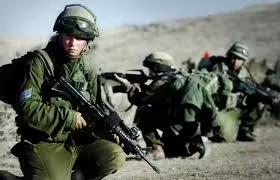In a significant escalation of regional tensions, Israel has confirmed a series of targeted airstrikes on Beirut, specifically aimed at a senior Hezbollah leader. The operation, part of Israel’s broader military campaign against the Iran-backed militant group, marks one of the most direct strikes on Hezbollah leadership in recent years.
The Israeli Defense Forces (IDF) issued a statement claiming responsibility for the operation, stating that the strikes were in response to Hezbollah’s increasing military activities along the Israel-Lebanon border. “We will not tolerate threats to our national security,” an IDF spokesperson said, emphasizing the group’s ongoing role in destabilizing the region. While details about the target remain undisclosed, Israeli officials believe the operation has dealt a significant blow to Hezbollah’s command structure.

Hezbollah, a powerful force in Lebanon with a history of confrontations with Israel, has not confirmed any casualties but condemned the strikes, calling them an “act of aggression.” A Hezbollah representative vowed retaliation, sparking fears of further escalation between the two rivals.
The airstrikes have drawn international attention, with the United Nations urging both sides to exercise restraint to prevent a full-scale conflict. The U.S. and several European nations have also expressed concern, calling for de-escalation and diplomacy.
The strike comes amidst a fragile political situation in Lebanon, which continues to grapple with economic collapse and political instability. This latest incident could further strain the Lebanese government’s ability to maintain peace within its borders.
As both sides weigh their next moves, the region watches anxiously, fearing that this exchange could lead to wider conflict. For now, Israel’s message is clear—its military is prepared to take decisive action against any threat it perceives from Hezbollah, and the stakes for both countries have never been higher.
What’s Next?
With tensions running high, many are watching closely for Hezbollah’s potential response. In previous years, similar incidents have led to cross-border skirmishes or missile exchanges, with civilian populations on both sides bearing the brunt of the conflict. The international community will likely continue to push for dialogue, but the history of animosity between Israel and Hezbollah suggests that this situation may remain volatile in the days to come.
Conclusion
Israel’s targeted strike on Hezbollah leadership highlights the ongoing struggle between the two entities, rooted in decades of hostility. The region, already facing political and economic turbulence, stands at a dangerous crossroads. Whether this marks a turning point in the conflict or a temporary escalation remains to be seen, but the consequences will undoubtedly shape the future of Israeli-Lebanese relations.